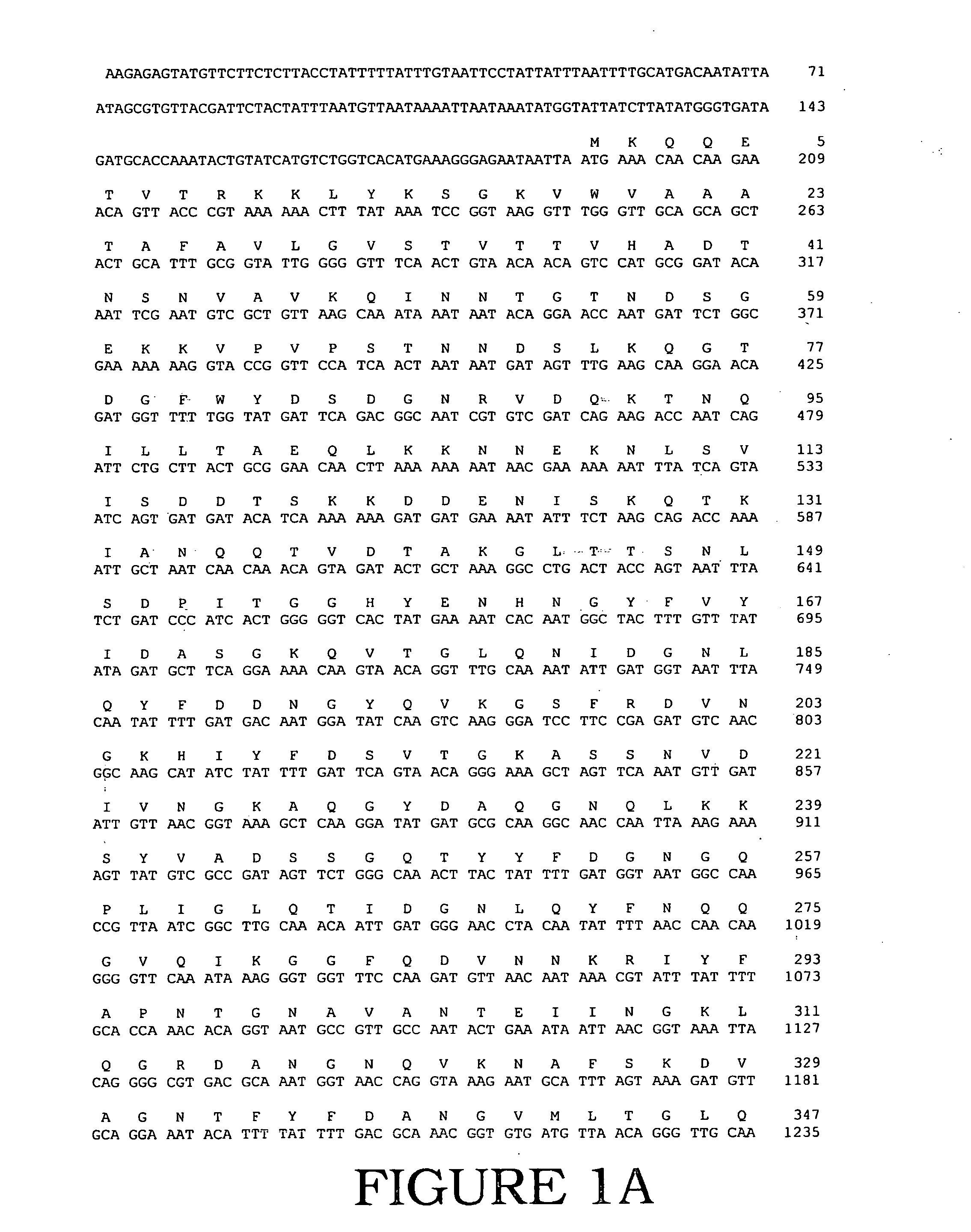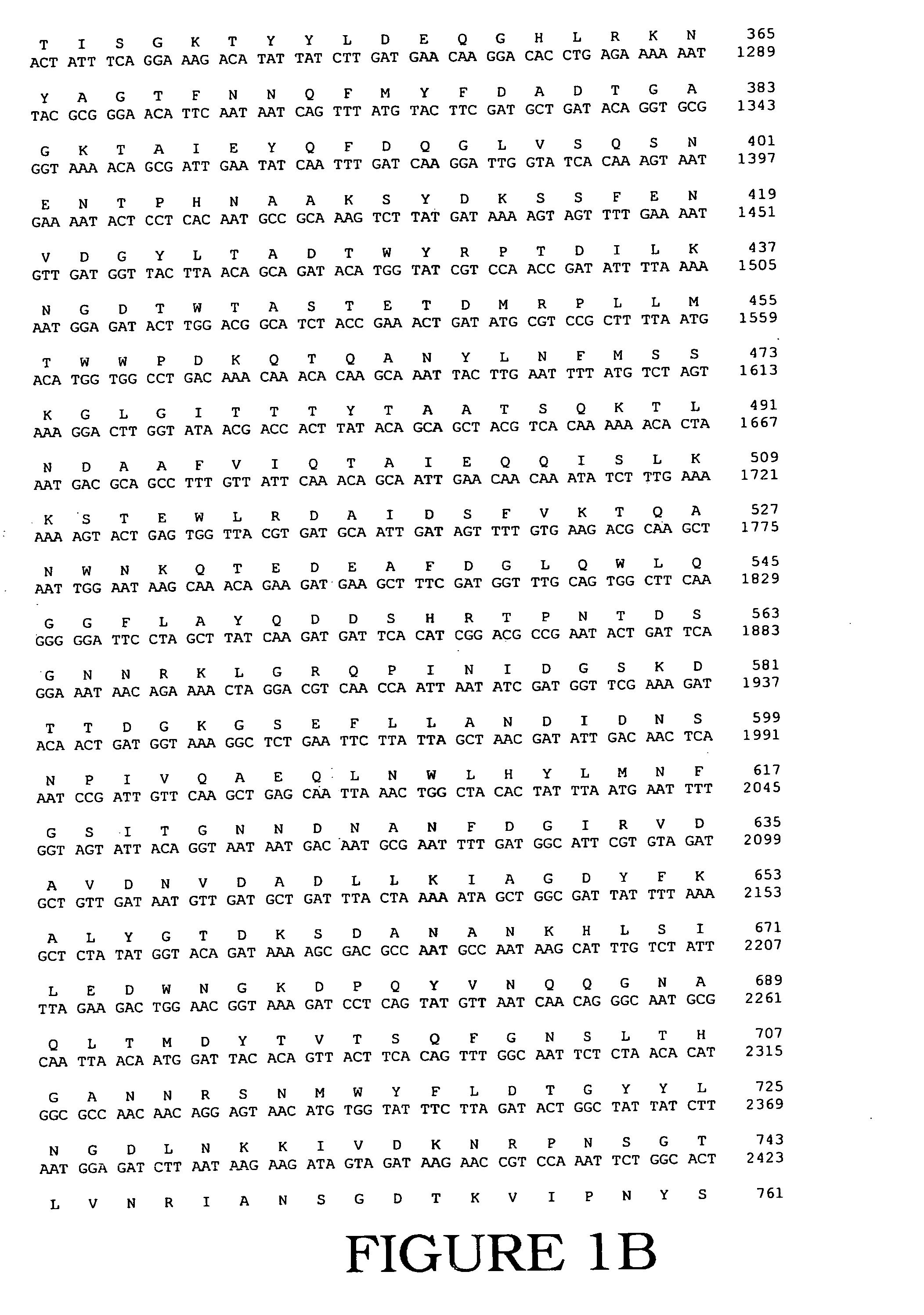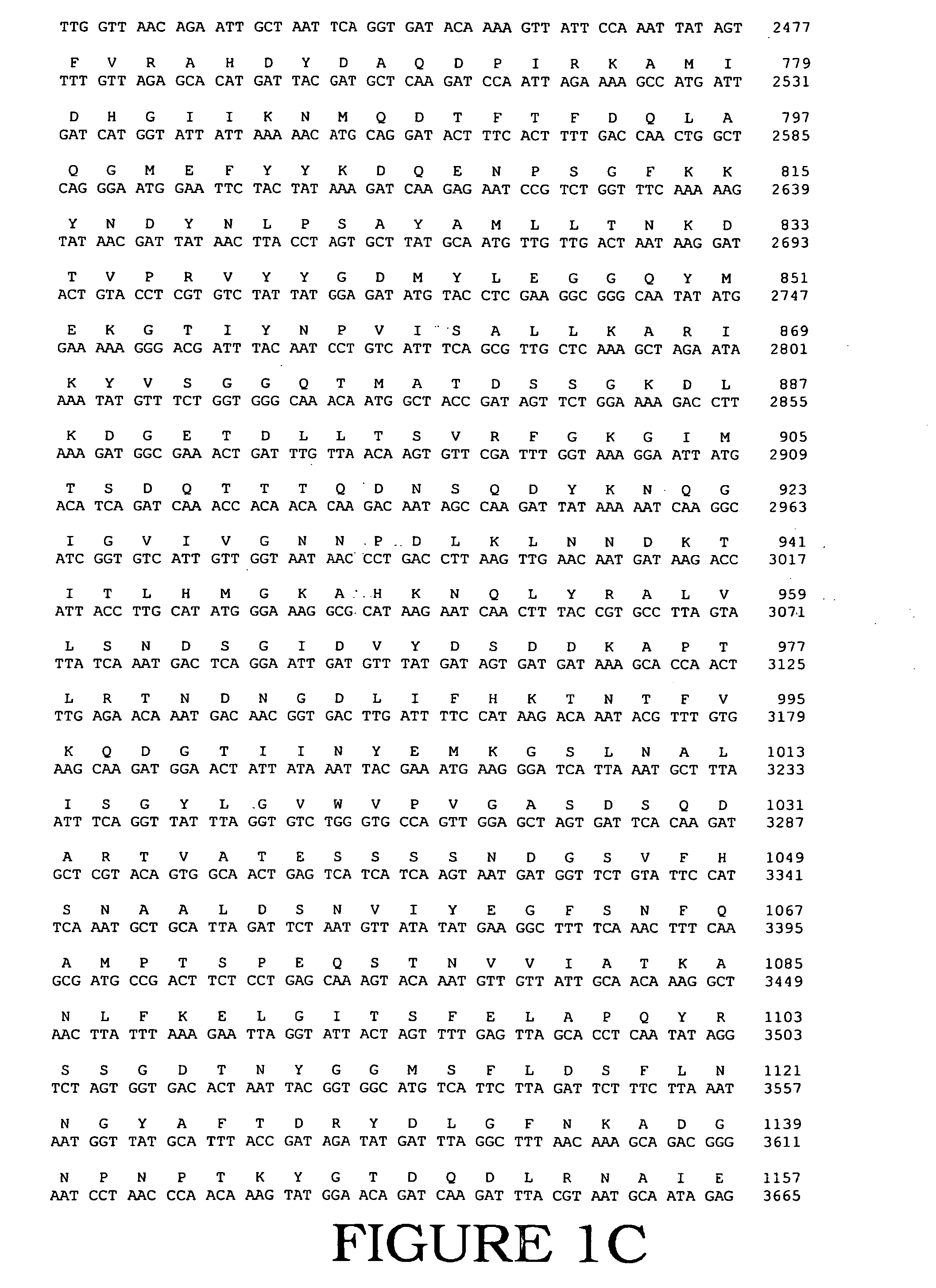Fully active alternansucrases partially deleted in its carboxy-terminal and amino-terminal domains and mutants thereof
- Summary
- Abstract
- Description
- Claims
- Application Information
AI Technical Summary
Problems solved by technology
Method used
Image
Examples
example 1
Bacterial Strains and Growth Conditions
[0192] Native alternansucrase was obtained from Leuconostoc mesenteroides NRRL B-23192, a mutant strain of NRRL B-1355 which is enriched in alternansucrase (Smith et al Journal of Industrial Microbiology &Biotechnology 21, 37-45 (1998)). This strain was grown at 27° C. on standard medium as previously described by Dols et al Carbohydr. Res. 305, 549-559 (1997). Cells and other insolubles were recovered by centrifugation and used as a native alternansucrase source. Genomic DNA was extracted from L. Mesenteroides NRRL B-1355. The strains were provided by the NCAUR stock culture collection in Peoria, Ill., USA. E. coli One Shot TOP10 (Invitrogen) was used for transformation of constructed plasmids and for expression of truncated asr genes. Bacterial cells were grown on LB medium with 100 μg.ml−1 of ampicillin. The induction was performed using 0.02% arabinose (w / v). Cells were harvested after 19 hr by centrifugation (4,500×g), 10 min. 4° C.) and ...
example 2
Cloning and Expression of the asr Truncated Genes
[0195] Different genes were deleted at the 5′ and 3′ end (FIG. 3) were generated by PCR amplification with the aid of the primer “Bad dir” for the constructions [pBad asr] and [pBad asr C-del] and the primer “Bad var del” for the constructions [pBad asr var del] and [pBad asr core]. The reverse primers used were “Bad inv” for the constructions [pBad asr] and [pBad asr core]. (See, Material and Methods for the primer sequences).
[0196] The forward primers were designed to place the alternansucrase gene (hereinafter asr gene) in the same reading frame as the gene coding for the thioredoxin in the vector. The forward primers contain a NcoI restriction site (CCATGG) (SEQ ID No. 49) including a start codon designed to remove the thioredoxin. The reverse primers were designed to eliminate the stop codon in the asr gene (if it was present) and to facilitate the same open reading frame of the polyhistidine tag. The PCR products obtained were...
example 3
Resolubilization of the Insoluble Aggregates
[0201] Resolubilization of the insoluble aggregates expressed in [pBad asr C-del bis] was undertaken. The insoluble fractions with enzyme activities less than 5 U.1−1 where the presence of aggregates was suspected were subjected to the following procedure. A protein fraction of the culture at 21 hours, 30° C. and induction of 0.002% arabinose having a enzyme activity of 0.186 U.1−1 was solubilized in a 20 mM phosphate buffer containing 8 M urea, pH 8.0 for a period of one hour. The proteins were renatured by dialysis in a 20 mM sodium acetate buffer pH 5.4. This step was performed at different dilutions of the solubilized extract of 1 / 120, 1 / 55. 1 / 21 and 1 / 6 to reduce protein precipitation where the proteins were too concentrated after renaturation. The enzyme activity was then measured and resulted in an activity of 50 U.1−1 thus a gain of a factor of 263.
[0202] Another experiment was performed in which the [pBad asr C-delete bis] const...
PUM
| Property | Measurement | Unit |
|---|---|---|
| Fraction | aaaaa | aaaaa |
| Fraction | aaaaa | aaaaa |
| Fraction | aaaaa | aaaaa |
Abstract
Description
Claims
Application Information
 Login to View More
Login to View More - R&D
- Intellectual Property
- Life Sciences
- Materials
- Tech Scout
- Unparalleled Data Quality
- Higher Quality Content
- 60% Fewer Hallucinations
Browse by: Latest US Patents, China's latest patents, Technical Efficacy Thesaurus, Application Domain, Technology Topic, Popular Technical Reports.
© 2025 PatSnap. All rights reserved.Legal|Privacy policy|Modern Slavery Act Transparency Statement|Sitemap|About US| Contact US: help@patsnap.com



